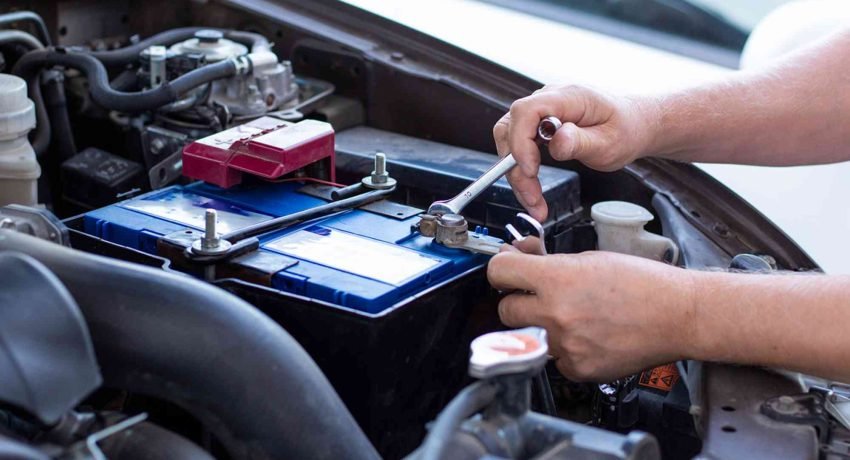Introduction
Understanding how often to replace a car battery is essential for maintaining your vehicle’s reliability and performance. A weak or dead battery can leave you stranded, so knowing the right time to replace it can save you time, money, and frustration. In this detailed How Often Car Battery Replacement — Practical Tips & FAQs guide, we’ll discuss signs of battery wear, expert replacement tips, and answers to the most common questions drivers ask.
Car batteries don’t last forever. On average, most last between three to five years, but several factors influence their lifespan. Climate, driving habits, and maintenance all play a major role in determining when your battery needs to be replaced. By understanding these elements, you can take proactive steps to ensure your car runs smoothly all year round.
Understanding Car Battery Lifespan
Every car battery has a limited lifespan, and while manufacturers may claim durability, real-world conditions tell a different story. Typically, a car battery starts to weaken after about three years of use. Beyond five years, it becomes increasingly unreliable and prone to sudden failure.
Batteries work by storing chemical energy that converts into electrical energy to power your vehicle’s systems. Over time, chemical reactions weaken, reducing capacity and efficiency. Regular inspection helps you identify early signs of battery failure before they cause serious issues.
Environmental factors have a major impact as well. Extreme heat speeds up chemical reactions inside the battery, causing it to degrade faster. Cold weather, on the other hand, slows down these reactions, reducing starting power. If you live in a region with harsh weather, you may need more frequent replacements than drivers in moderate climates.
Signs It’s Time to Replace Your Car Battery
Knowing the early warning signs of a failing battery can prevent inconvenient breakdowns. Some of the most common indicators include:
Your engine cranks slowly when you try to start the vehicle.
Headlights appear dim or flicker when the engine is running.
Dashboard warning lights, such as the battery symbol, appear.
You notice corrosion on the battery terminals or connectors.
The battery case appears swollen, cracked, or leaking.
These symptoms suggest that the battery can no longer hold an adequate charge. Ignoring them can lead to sudden failure, especially in extreme weather. It’s wise to have your battery tested every six months once it’s over three years old.
Factors That Affect Battery Longevity
Several factors determine how long your car battery will last. Understanding these will help you maintain it properly and plan replacements effectively.
Driving habits matter more than most people realize. Frequent short trips don’t give the alternator enough time to recharge the battery fully, leading to premature wear. If you mostly drive short distances, try taking your car for longer drives occasionally to allow the battery to recharge completely.
Temperature also plays a big role. Hot climates accelerate battery fluid evaporation, while cold climates reduce cranking power. Parking your car in a shaded area or garage can help reduce environmental strain.
Maintenance is equally important. Regularly cleaning corrosion from terminals, checking the battery’s voltage, and ensuring a secure connection can extend its lifespan. Using a smart battery maintainer for vehicles that sit idle for long periods can also keep the charge stable.
How Often Should You Replace a Car Battery?
The most common question drivers ask is: How often should I replace my car battery? Generally, replacement every three to five years is recommended, depending on usage and environment. However, it’s best not to wait until total failure occurs. Preventive replacement ensures that your vehicle remains reliable, especially during long trips or extreme seasons.
If your car’s electrical systems start showing irregular behavior, such as flickering lights or erratic dashboard displays, have your battery tested immediately. Modern vehicles rely heavily on stable electrical power, and a weak battery can affect sensors, ignition systems, and onboard electronics.
For detailed insights and step-by-step guidance, you can refer to the How Often Car Battery Replacement Guide to learn how to check, test, and maintain your battery efficiently.
Practical Tips to Extend Battery Life
While batteries inevitably wear out, proper care can help extend their life. Here are some practical tips to keep your battery performing optimally:
Keep terminals clean and corrosion-free using a wire brush and baking soda solution.
Ensure the battery is securely mounted to prevent vibration damage.
Turn off lights, air conditioning, and radio before switching off the engine.
Check the alternator’s charging rate regularly to avoid overcharging or undercharging.
Drive your car regularly or use a battery maintainer if stored for long periods.
By following these small yet effective practices, you can save money on premature replacements and reduce the chances of sudden breakdowns.
Testing and Maintenance: A Preventive Approach
Regular testing is the key to maintaining a healthy battery. Many auto repair shops offer free battery testing services. You can also use a multimeter at home to check the voltage; a fully charged battery should read around 12.6 volts when the engine is off.
If the voltage consistently drops below 12 volts, it’s time to consider replacement. Testing under load conditions provides a more accurate picture, as it simulates real starting conditions. If the battery voltage drops rapidly during a load test, it indicates internal wear or sulfation.
Routine inspections should include checking fluid levels in non-sealed batteries, tightening connections, and ensuring cables are not frayed. Consistent maintenance helps detect problems early and prolongs battery life.
Choosing the Right Replacement Battery
Selecting the correct replacement battery is just as important as timely replacement. Consider the following when buying a new one:
Check your vehicle’s manual for the correct size, capacity, and terminal layout.
Opt for batteries from reputable brands that meet OEM specifications.
Look for models with good warranties—usually two to three years.
Consider AGM (Absorbent Glass Mat) or EFB (Enhanced Flooded Battery) types for modern vehicles with high electrical demands.
Avoid going for cheaper alternatives that may lack the required power or durability. Quality batteries perform better in extreme weather and provide more consistent power for onboard systems.
How Professional Mechanics Can Help
While replacing a battery seems simple, professional help ensures proper installation and electrical safety. Mechanics not only replace the battery but also test the alternator, starter motor, and charging circuit to rule out other issues.
A professional will also reset any error codes that may appear in modern vehicles after battery replacement. This ensures your car’s onboard computer recognizes the new battery correctly.
You can read expert insights on How Often Car Battery Replacement for detailed advice from automotive professionals.
Common Myths About Car Batteries
Many car owners believe that batteries only fail in winter. However, high summer temperatures are equally harmful, often causing chemical breakdowns that manifest as failure in colder months. Another misconception is that unused cars preserve battery life. In reality, inactivity drains the charge slowly, leading to sulfation and reduced capacity.
Some also think jump-starting a car frequently won’t harm the battery. While it provides temporary relief, repeated jump-starting damages internal components. Understanding these myths helps prevent costly mistakes and ensures longer battery performance.
FAQs
How long does a car battery last?
Typically, a car battery lasts 3–5 years, depending on driving habits and climate. Regular testing helps ensure reliability.
What are the signs of a failing battery?
Slow starts, dim headlights, corroded terminals, and dashboard warning lights are the most common signs.
Can extreme weather affect battery life?
Yes, both extreme heat and cold reduce battery efficiency. Hot climates cause fluid loss, while cold slows chemical reactions.
Is it okay to replace a car battery myself?
Yes, if you follow safety precautions. However, professional installation ensures correct fitting and system testing.
Should I replace a weak battery before it dies?
Absolutely. Preventive replacement prevents breakdowns and protects other vehicle electronics from voltage instability.
How can I extend my car battery’s life?
Drive regularly, keep terminals clean, and check voltage often. Avoid leaving electrical systems on when the engine is off.
Expert Insights and Real-World Experience
According to automotive experts and sources like The New York Times, the growing reliance on electronics in modern cars makes battery maintenance more crucial than ever. Systems like automatic start-stop, advanced lighting, and infotainment units draw significant power even when the engine is idle. Keeping your battery in top condition is not just about starting the engine—it’s about ensuring all these systems work efficiently.
Experienced mechanics often emphasize that timely replacement can prevent cascading issues in the alternator or starter system. By investing in a quality battery and scheduling routine checks, you ensure long-term reliability and peace of mind.
Understanding How Often Car Battery Replacement — Practical Tips & FAQs helps every driver make informed maintenance decisions. A well-maintained battery ensures smooth starts, reliable performance, and fewer roadside emergencies. Don’t wait for complete failure—replace your battery proactively and follow preventive care practices.











